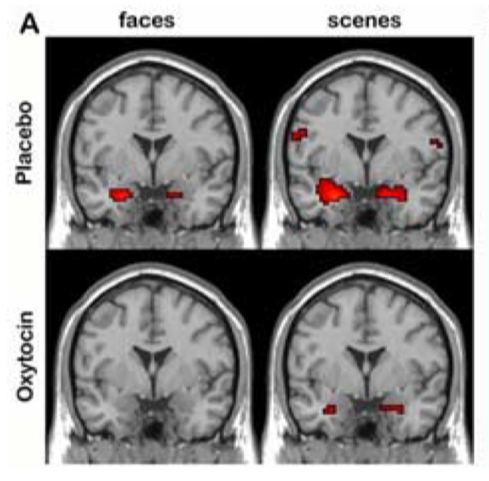
This is the third in our S4 Insights series: Proving the Soft Stuff with Hard Science.
If there’s anything we’ve learned in over three decades of work, it’s that trust is the foundation of all social and business relationships.
You just delivered the perfect sales pitch in a meeting but, no matter how many objections you overcome, you can’t seem to close the account.
You’re giving a presentation you’ve spent weeks preparing for but, despite the research you’ve done, there are two or three people in the room that still don’t take you seriously.
Your firm just won an exciting contract and you ask your supervisor to put you on the project, only to be told that a newer, less experienced associate will be given the responsibility instead.
What’s wrong?
People don’t trust you enough. And if there’s anything we’ve learned in over three decades of work, it’s that trust is the foundation of all social and business relationships.
Whether people trust you is often up to you; this is our third key to powerful business relationships. While we begin evaluating trust before we even realize it, we have nearly full control over whether people trust us or not and it has a lot to do with how a particular chemical behaves in the brain: oxytocin.
Hailed as the “trust molecule,” oxytocin is released when we decide that a person is safe to be around and reduces our natural vigilance. Trust is inherently a risk-taking behavior – but with all risk comes the possibility of reward. The cost-benefit analysis your brain performs when you decide to trust somebody releases oxytocin that dampens activity in the neural systems responsible for fear processing and anxiety. Oxytocin explains why we feel safe when working with people we trust. 1 2 With trust, everyone is empowered to do their best because they feel secure.

Figure 1: Amygdala activity (red) is significantly less in oxytocin group when viewing fearful/threatening faces and scenes. When we build high-trust business relationships, it is the same decrease in red activity that accounts for the safety we feel when working with others.
Distrust, on the other hand, can actually increase activity in these neural systems, putting our brain into what some scholars call “critter state.” 3 We struggle to communicate with others and solve complex problems in this state because our nervous system is focused solely on safety and survival. In brain and in business, a lack of trust slows things down, increases cost, and lowers performance.
According to a 2017 Gallup poll4, B2B customers produce 1.5 times greater revenue and are 2.5 times more likely to repurchase the company’s products or services when they strongly agree that their supplier is a trusted adviser. Since only half of B2B customers (54%) strongly agree that their sales or account teams are trusted advisors, building trustworthy B2B relationships might be the most competitive solution if you’re looking for a way to distinguish yourself in an aggressive B2B market.
But if you seriously wanted to build trust, where would you start?
Aligning with our own recommendations, studies of trust in the brain5 have identified several oxytocin-promoting behaviors you can exercise in your work to build trust and, in turn, powerful business relationships.
- Make yourself vulnerable. Being transparent and willing to openly share information conveys the message that you’ve got nothing to hide. In fact, studies have shown that witnessing such behavior can cause a spike in oxytocin levels.6 So admit your mistakes and don’t be afraid to ask for help. Making yourself vulnerable promotes trust and cooperation while making you and your business look confident and secure.
- Be sincere and caring. Make sure you have good intentions before you begin working with someone. Ask yourself, how is this work mutually beneficial? Do we have a shared vision of wanting the best for each other? Am I being sincere? View your employees, business partners, and customers as volunteers that need to be engaged in a collective mission. You’ll find yourself improving the customer experience and building a customer-centric culture.
- Commend excellence. Neuroscience research shows that publicly and unexpectedly recognizing your business partners’ or clients’ achievements can stimulate oxytocin and significantly build trust. Acknowledging someone else’s success communicates a genuine interest in their growth. So give your colleague some praise if they did a great job last quarter; congratulate your customer if they were recently given an industry award. If you demonstrate that you have someone’s back when things are good, it’s more likely they’ll have your back when things are not.
Trust is not some soft, intangible quality that you either have or you don’t; rather, it’s a pragmatic, tangible, actionable asset that you can build with the right actions and choices.7 It is both measurable and manageable.
Trusting relationships are stronger, more powerful, and require less upkeep. An investment in building trust is an investment in your future and could be exactly what you need to lower costs, raise profits, and take you and your business to the next level. Regardless of your industry, your business and your brain will run more smoothly if you operate in a high-trust environment.
By Trevor Thomas
Read more in this series:
- Kirsch, P., Esslinger, C., Chen, Q., Mier, D., Lis, S., Siddhanti, S., et al. (2005). Oxytocin modulates neural circuitry for social cogni- tion and fear in humans. Journal of Neuroscience, 25, 11489–11493.
- Labuschagne, I., Phan, K. L., Wood, A., Angstadt, M., Chua, P., Heinrichs, M., … & Nathan, P. J. (2010). Oxytocin attenuates amygdala reactivity to fear in generalized social anxiety disorder. Neuropsychopharmacology, 35(12), 2403.
- Comaford, C. (2012, October 21). Hijack! How Your Brain Blocks Performance. Retrieved from Forbes.com
- Durr, J., Leonard, D. (2017, May 23). B2B: Secrets to Big Customer Partnerships. Retrieved from Gallup.com
- Zak, P. J. (2017). The neuroscience of trust. Harvard Business Review, 1.
- Zak, P. J., & Barraza, J. A. (2013). The neurobiology of collective action. Frontiers in neuroscience, 7, 211.
- Covey, S. M. (2006). The speed of trust: The one thing that changes everything. Simon and Schuster.






